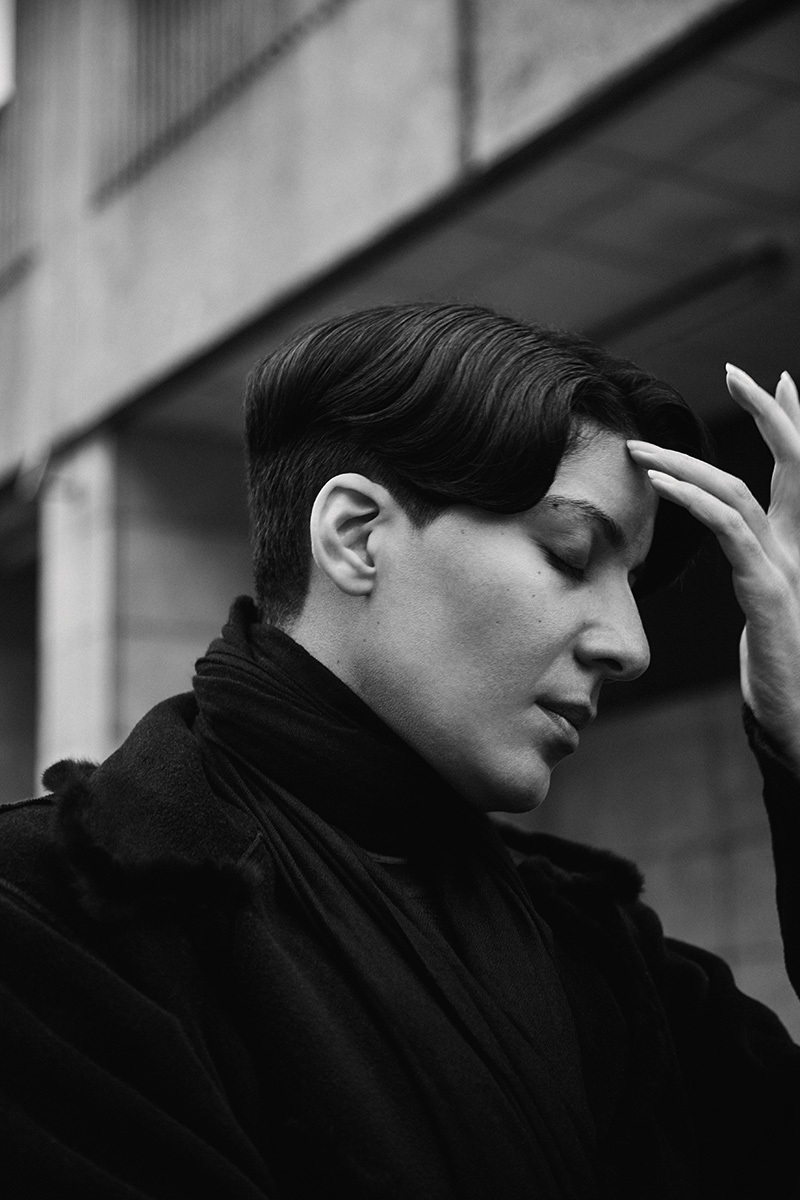“The West has sold me a lot of things…” Fatima Al Qadiri laughs, her New York-inflected Kuwaiti tones carried over a patchy Skype connection from her studio in Berlin. “Freedom of speech is the main totem of democracies, right? That’s what sets democracies apart from dictatorships: you can protest in them,” she explains, elucidating the ideas behind her powerful 2016 album Brute. “That [distinction] was really sold hard to me, by American movies, as a kid growing up in Kuwait.” Fatima was nine-years-old when Saddam Hussein invaded the small but oil-rich state in 1990. Her family stayed put through the Gulf War, leaving after the Iraqi dictator had been pushed out by coalition forces, led by the US. However, when Fatima moved to the States in 1999, she discovered that the reality of Western democracy didn’t quite match up to the sales pitch. “I was a freshman in college when I attended my first protest — the IMF and World Bank protest in Washington DC [in 2000],” she says. “It was the first time I saw people being water cannoned and pepper sprayed and locked-up en masse; I’d never seen so many police in my entire life.”
Fatima’s observation of what she describes as the “criminalization of protest,” and the militarization of police forces, forms the core of Brute. It is a dark, menacing and unashamedly political record, informed by her own experiences. “When I saw Black Lives Matter protests across the United States, I realized I was mature enough to make a record about this subject. After years of witnessing this charade — that protest and the freedom of speech is somehow allowed in the West, that it’s protected — because it’s obviously not.” The record samples audio of US police threatening protesters with arrest over a loudspeaker, and blasting them with the piercing trill of the LRAD ‘sound cannon.’ Al Qadiri’s signature synths become fractious, layered with foreboding horns and doomy bass on “Battery,” and shattering glass effects on “Power.” “When I made the record I was filled with darkness. It’s a completely hopeless record, made out of despair,” she says.
Since the record came out, Fatima has found some hope. After being connected with Policing the Planet, a collection of writing on global policing, she is convinced there is a solution: abolish all police and prisons. “It’s not a dream. It’s just a redirecting of public funds,” she explains. “The funds are there, they’re just prioritized for war, and that’s a thing we need to talk about as societies across the world. A trillion dollars was ‘lost’ in the invasion of Iraq. Imagine if just that trillion was put into education or healthcare.”
Fatima has already taken aim at the next barrier to smash. She wants to score a film — sci-fi, of course — but says, “unfortunately this is the most male-dominated arena in the music industry. There’s literally one or two women that have ever written a score for a major feature.” She won’t discuss the project she’s working on right now, so as not to jinx it, but as for the future, she says, “I’m going to keep doing what I want to do, because I grew up against extreme odds to be an Arab woman producing music in the West.” Odds are, we’ll hear a lot more from Fatima Al Qadiri yet.
Credits
Text Charlotte Gush
Photography Lotte van Raalte
